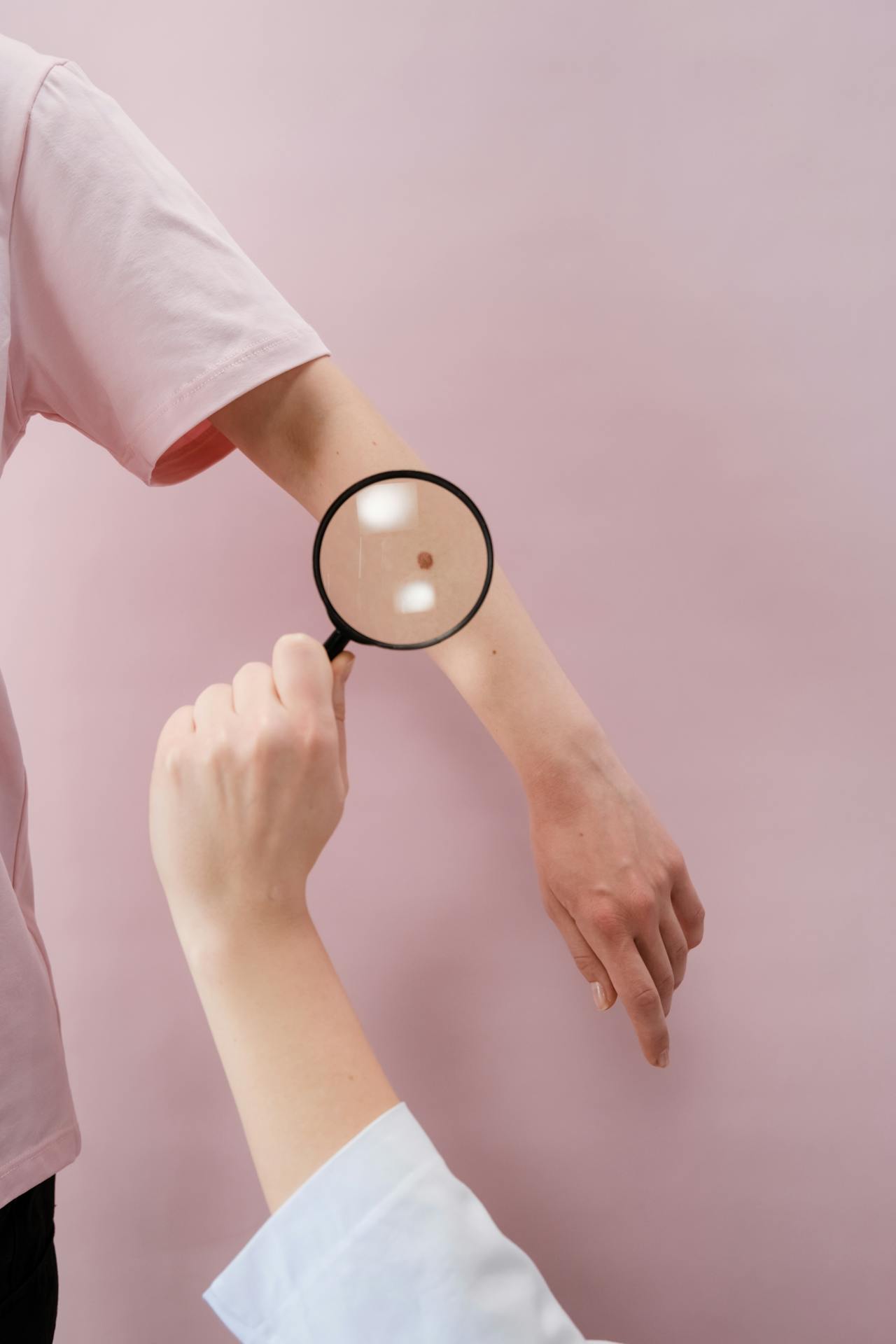OUR SKIN CHECKS AND SKIN CLINIC SERVICES
At Brisbane City Doctors, we provide comprehensive skin clinic services including skin checks, skin cancer checks, mole checks, and the management of common skin conditions. Our doctors use dermoscopy and modern diagnostic techniques to examine your skin and help detect changes early.
Why Regular Skin Checks Matter
Skin cancer is the most common cancer in Australia, with about 80% of all cancers diagnosed being skin-related. Queensland has one of the highest skin cancer rates in the world, making preventive care especially important.
A skin cancer check allows your doctor to examine your skin for suspicious moles, spots, or lesions. When identified and treated early, most skin cancers can be successfully managed. Regular checks with a skin cancer doctor provide reassurance and ensure timely follow-up if changes are detected.
Book your skin check today and take an active step in protecting your health.
Our Skin Clinic Services
Our GPs provide a wide range of skin clinic services, including:
- Full Body Skin Cancer Check: A thorough head-to-toe examination using a dermatoscope to detect suspicious spots or lesions.
- Mole Checks and Monitoring: Routine mole checks help identify early changes. Your doctor may recommend digital imaging or follow-up reviews to monitor moles over time.
- Dermoscopy and Digital Imaging: Dermoscopy is a tool that allows doctors to see features beneath the skin surface. Images may be used to track changes in moles.
- Biopsy and Lesion Removal: If a mole or lesion appears concerning, your GP may recommend a biopsy or removal. This can be arranged through our clinic or with a specialist referral.
- Treatment for Skin Conditions: We diagnose and manage a wide range of skin conditions including: psoriasis, eczema, rosacea, acne, warts, hives, fungal infections, and dermatitis.
As a full-service clinic, we also coordinate your care with on-site pathology and specialist referrals when required.
What to Expect During a Skin Check
Patients often feel reassured once they know what a skin check involves:
- Consultation - Your doctor will ask about your medical history, sun exposure, and family history of skin cancer.
- Examination - A dermatoscope is used to carefully examine your skin, including areas not regularly exposed to the sun such as the scalp and soles of the feet.
- Recording - Suspicious moles or lesions may be photographed for monitoring.
- Next steps - If necessary, your GP may recommend a biopsy, excision, or referral to a skin cancer specialist.
A skin check usually takes 15-30 minutes depending on how many moles or lesions need assessment.
Who Should Have a Skin Cancer Check and How Often
Most adults should consider a skin check every 1-2 years. More frequent checks (every 6-12 months) may be recommended if you:
- Have fair skin, freckles, or light-coloured hair
- Have a personal or family history of melanoma or skin cancer
- Have a history of significant sunburns, especially in childhood
- Spend a lot of time outdoors for work or recreation
- Notice a new or changing mole
Your GP can advise the best frequency based on your individual risk.
Fees and Billing
- Standard consultation fees apply for skin checks.
- Biopsies, excisions, or additional procedures may involve extra fees.
- Medicare rebates are available for eligible patients.
- Our staff can provide clear fee information before your appointment.
For more details, see our Fees page.
Book a Skin Check
Regular skin checks are one of the most effective ways to detect skin cancer early. If you have not had a check in the last 12 months, or you have noticed a mole or spot that concerns you, it may be time to see a doctor.
Book a skin check today with Brisbane City Doctors for peace of mind and professional care.

FAQs About Skin Checks
Most appointments take 15-30 minutes depending on the number of moles and whether any require further examination.
Yes, you will usually need to undress down to your underwear so your doctor can examine all areas of your skin. A gown or sheet will be provided if required for comfort.
If your GP feels a spot requires urgent investigation, a biopsy may be performed on the same day or booked for a follow-up appointment.
Medicare rebates apply for most skin checks and related procedures, but out-of-pocket costs may vary depending on your eligibility and the type of consultation.
For most people, every 1-2 years is recommended, while higher-risk patients may need checks every 6-12 months.
Do not wait for your next routine check. Book an appointment with one of our doctors as soon as possible.
